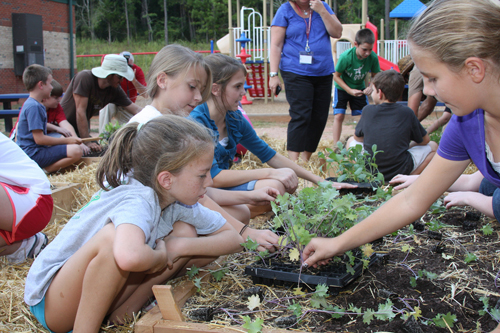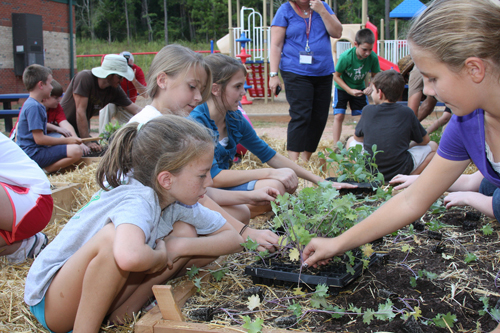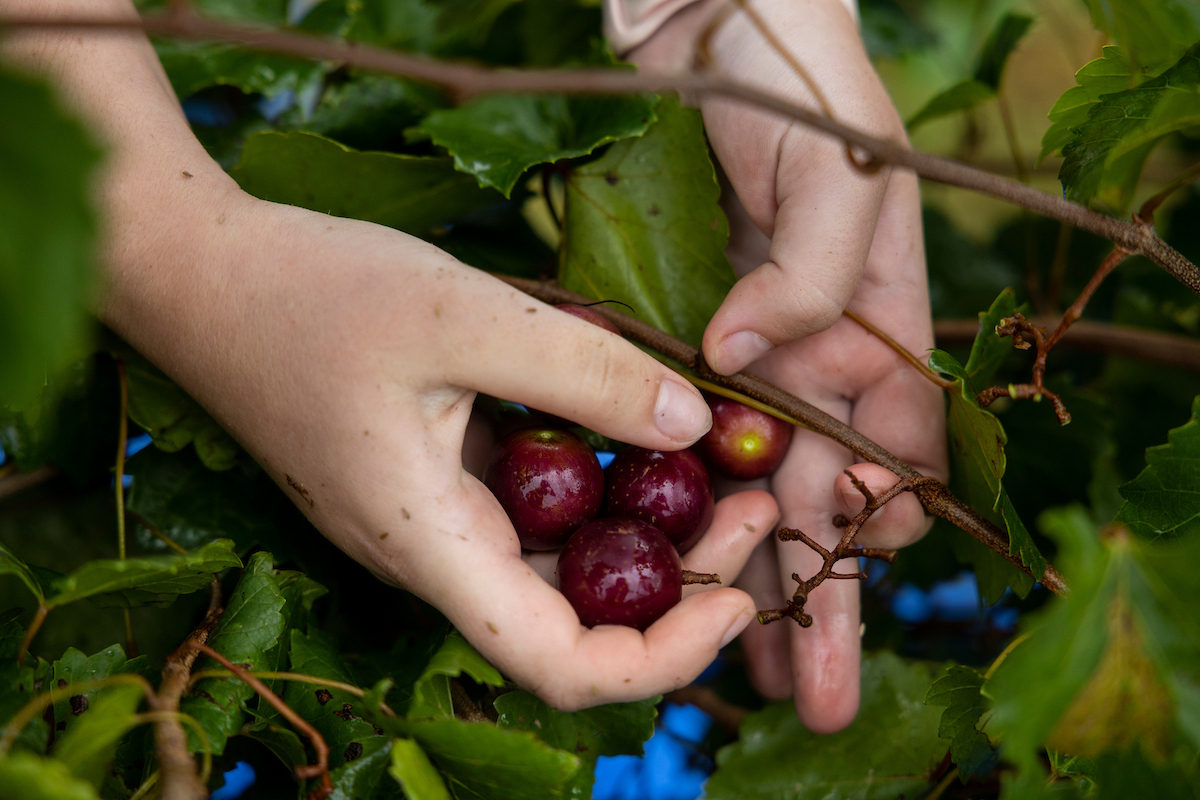With the majority of American children at least two generations removed from the farm, it is common for them to think their food originates at the grocery store. Or even worse, they may think it comes from a fast food restaurant. The Farm to School program was established to help battle this misperception and to help children connect and appreciate the food they eat.
According to the National Farm to School Network, Farm to School is “a program that connects K-12 schools and local farms with the objectives of serving healthy meals in schools, improving student nutrition, providing agriculture, health and nutrition opportunities, and supporting local and regional farmers.”
Recently, a Farm to School Kick-off was held in Monroe. Teachers, Master Gardeners, concerned parents and farmers all gathered to share what they are doing to address the issue. Activities occurring in Walton County range from school gardens, nutrition education, Boys and Girls Club programs, farm tours as well as 4-H and FFA activities.
Childhood obesity is at an all-time high in our country, and Farm to School programs show an impact by introducing fresh fruits and vegetable to children in a fun and interactive way. When children participate in the actual growing of their food, they are much more likely to eat it.
School gardens are becoming a proven method to introduce certain math, social studies, language arts, science and health concepts to students. Rick Huszagh and Crista Carrell of Down to Earth Energy feel so strongly about the initiative, they donated a trailer filled with garden tools to be used by schools and community groups who want to teach others how to grow their own food. Christy Bowman, principal at Harmony Elementary School, has a dream of reconnecting her students back to the earth by developing “Harmony Farms” on the school property.
Master Gardener Rosemarie Sells is using pottery and journal writing to introduce children to the world of food production. Local organic vegetable producer Clay Brady of Foster Brady Farms is willing to speak at schools about the life of a farmer or offer field trips to his farm.
To bring awareness to these efforts, October has been named National Farm to School month. Think about how you can take part. If you have gardening skills, volunteer to help in your child’s school garden, sign up to read a farm-related book to students at a local school, visit a local farmers market, plant a cool season vegetable garden at home, pledge to pack more fresh fruits and vegetables in your child’s lunch box, or visit a local farm to pick a pumpkin.
To learn more ways to celebrate Farm to School month, go to www.farmtoschoolmonth.org.





